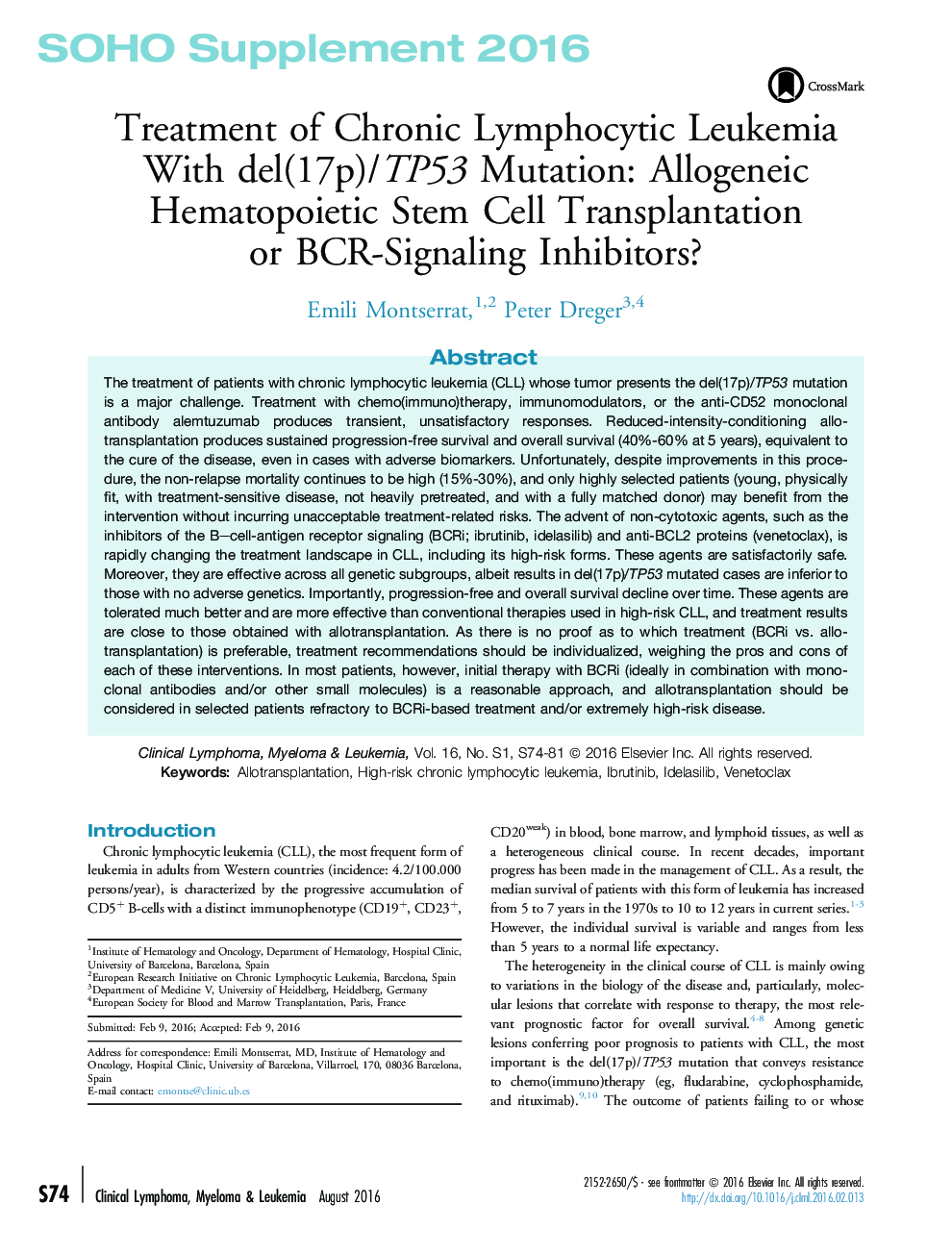| کد مقاله | کد نشریه | سال انتشار | مقاله انگلیسی | نسخه تمام متن |
|---|---|---|---|---|
| 2754408 | 1149781 | 2016 | 8 صفحه PDF | دانلود رایگان |

The treatment of patients with chronic lymphocytic leukemia (CLL) whose tumor presents the del(17p)/TP53 mutation is a major challenge. Treatment with chemo(immuno)therapy, immunomodulators, or the anti-CD52 monoclonal antibody alemtuzumab produces transient, unsatisfactory responses. Reduced-intensity-conditioning allotransplantation produces sustained progression-free survival and overall survival (40%-60% at 5 years), equivalent to the cure of the disease, even in cases with adverse biomarkers. Unfortunately, despite improvements in this procedure, the non-relapse mortality continues to be high (15%-30%), and only highly selected patients (young, physically fit, with treatment-sensitive disease, not heavily pretreated, and with a fully matched donor) may benefit from the intervention without incurring unacceptable treatment-related risks. The advent of non-cytotoxic agents, such as the inhibitors of the B–cell-antigen receptor signaling (BCRi; ibrutinib, idelasilib) and anti-BCL2 proteins (venetoclax), is rapidly changing the treatment landscape in CLL, including its high-risk forms. These agents are satisfactorily safe. Moreover, they are effective across all genetic subgroups, albeit results in del(17p)/TP53 mutated cases are inferior to those with no adverse genetics. Importantly, progression-free and overall survival decline over time. These agents are tolerated much better and are more effective than conventional therapies used in high-risk CLL, and treatment results are close to those obtained with allotransplantation. As there is no proof as to which treatment (BCRi vs. allotransplantation) is preferable, treatment recommendations should be individualized, weighing the pros and cons of each of these interventions. In most patients, however, initial therapy with BCRi (ideally in combination with monoclonal antibodies and/or other small molecules) is a reasonable approach, and allotransplantation should be considered in selected patients refractory to BCRi-based treatment and/or extremely high-risk disease.
Journal: Clinical Lymphoma Myeloma and Leukemia - Volume 16, Supplement, August 2016, Pages S74–S81